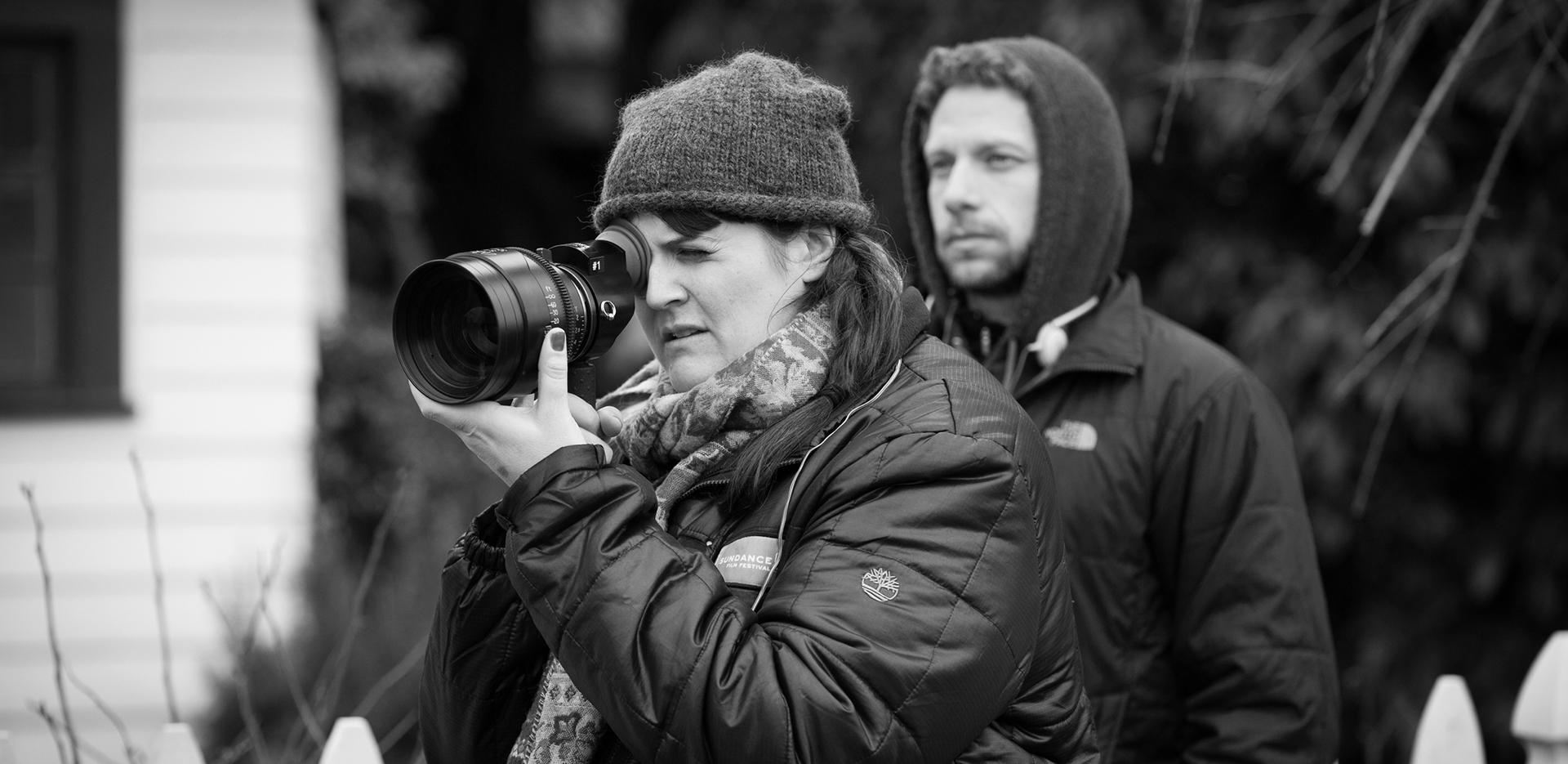Welcome to the Keep Film in WA Series – The Faces of Film!
This series aims to shine a spotlight on the people behind the films of Washington State, using portraits of them at work to remind the public and legislators the lives (and livelihoods) that are at stake if the incentive program disappears on June 30. Along with each portrait, the cast or crew member will share in their own words the important role that the incentive has had in creating their career and why it is important to have a vibrant film industry in Washington State. We hope that these photographs serve as inspiration, and that you share your story with us ([email protected]) and social media (#keepfilminwa)—and most importantly with the elected officials that represent you in Olympia!
Name: Megan Griffiths
City: Seattle, WA
Legislative District: 43
Describe your work: I am a writer/director working in film and television.
Years in the industry: 16
Why is Washington State a great place to film?
Washington’s landscape is stunning and incredibly diverse, which allows filmmakers to depict practically any region a given project calls for. But for me personally, if I had to cite the reason that I love shooting here, it would be the people. We have a film community that is truly special. I feel supported and valued here, and that environment of trust makes my work stronger.
What do you enjoy most about the work that you do? About being on set?
I love the collaborative nature of a film set. As a director, I’m working with the big picture constantly in mind, but there are all of these other people surrounding me who are focused on all the specific elements of the project, and with that singular focus often comes deep thoughtfulness about story and character. When you really embrace individual contributions of the creative minds on your set, you open the door to so much texture and richness.
How has the incentive program played a part in your financial or career growth?
Before I was working exclusively as a writer/director, I spent many years as a crew member, most notably as a first assistant director, which is the person on set who disseminates the information and ensures that the production runs on schedule. I was able to work year-round as a freelancer only after the incentive came to our state. With it, the incentive program brought better paying work, benefits, and larger budgets. The crews began to grow more diverse and more talented, and the work that came out of our state improved immensely. It laid the groundwork for me to be able to make the films I ultimately have made as a writer/director–I was able to assemble a team that had learned and grown with these incentive projects, and that knowledge in turn has made my films better.
What kind of financial benefits have you seen or experienced from the incentive in your greater community?
I have personally benefitted by being able to work and make a living here at home (and not have to constantly travel to industry hubs to make ends meet) but I have typically been more on the spending side of this equation. My films have spent millions not just in Seattle, but in the central part of the state (where we shot Eden) and in the mountains (where we shot parts of Lucky Them). Money has flowed from these productions to all manner of businesses, from hotels to restaurants to hardware stores, groceries, furniture shops, thrift stores, gas stations, airlines, equipment rental houses, and probably most importantly, the bank accounts of our great local actors and crew members, which then goes to pay their own living expenses and support our statewide economy.
What would you like legislators to know about the incentive renewal?
This program benefits so many people. Its reach far exceeds the boundaries of the film industry because film is a medium that utilizes so many resources and puts so many people to work. And, looking beyond the bottom line, I believe the kind of work championed and made possible by this program enriches our state’s cultural value. Supporting creative expression is vitally important.
What would happen to your film career or future work prospects if it were to go away?
Without an incentive program, I believe our industry would lose momentum overnight. Everything that we’ve been building would vanish—we’d lose qualified crews and actors to the surrounding states with incentive programs, and by extension it would become incredibly difficult for me to stay and make future films here. I don’t work alone. I need a skilled industry around me to make my work possible. Without our incentive, Washington would lose a great many jobs and opportunities, but it would lose something harder to quantify as well—a cultural mouthpiece for all the diverse voices who call Washington home.
